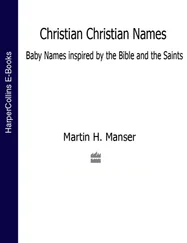Chapter 34.
Christ the First Way to God.
Table of Contents
38. And mark that even when He who is Himself the Truth and the Word, by whom all things were made, had been made flesh that He might dwell among us, the apostle yet says: “Yea, though we have known Christ after the flesh, yet now henceforth know we Him no more.” 1For Christ, desiring not only to give the possession to those who had completed the journey, but also to be Himself the way to those who were just setting out, determined to take a fleshly body. Whence also that expression, “The Lord created 2me in the beginning of His way,” 3that is, that those who wished to come might begin their journey in Him. The apostle, therefore, although still on the way, and following after God who called him to the reward of His heavenly calling, yet forgetting those things which were behind, and pressing on towards those things which were before, 4had already passed over the beginning of the way, and had now no further need of it; yet by this way all must commence their journey who desire to attain to the truth, and to rest in eternal life. For He says: “I am the way, and the truth, and the life;” 5that is, by me men come, to me they come, in me they rest. For when we come to Him, we come to the Father also, because through an equal an equal is known; and the Holy Spirit binds, and as it were seals us, so that we are able to rest permanently in the supreme and unchangeable Good. And hence we may learn how essential it is that nothing should detain us on the way, when not even our Lord Himself, so far as He has condescended to be our way, is willing to detain us, but wishes us rather to press on; and, instead of weakly clinging to temporal things, even though these have been put on and worn by Him for our salvation, to pass over them quickly, and to struggle to attain unto Himself, who has freed our nature from the bondage of temporal things, and has set it down at the right hand of His Father.
1.2 Cor. v. 16.
2.A.V. possessed.
3.Prov. viii. 22.
4.Comp. Phil. iii. 13.
5.John xiv. 6.
Chapter 35.
The Fulfillment and End of Scripture is the Love of God and Our Neighbor.
Table of Contents
39. Of all, then, that has been said since
we entered upon the discussion about things, this is the sum: that we should clearly understand that the fulfillment and the end of the Law, and of all Holy Scripture, is the love of an object which is to be enjoyed, and the love of an object which can enjoy that other in fellowship with ourselves. For there is no need of a command that each man should love himself. The whole temporal dispensation for our salvation, therefore, was framed by the providence of God that we might know this truth and be able to act upon it; and we ought to use that dispensation, not with such love and delight as if it were a good to rest in, but with a transient feeling rather, such as we have towards the road, or carriages, or other things that are merely means. Perhaps some other comparison can be found that will more suitably express the idea that we are to love the things by which we are borne only for the sake of that towards which we are borne.
Chapter 36.
That Interpretation of Scripture Which Builds Us Up in Love is Not Perniciously Deceptive Nor Mendacious, Even Though It Be Faulty. The Interpreter, However, Should Be Corrected.
Table of Contents
40. Whoever, then, thinks that he understands the Holy Scriptures, or any part of them, but puts such an interpretation upon them as does not tend to build up this twofold love of God and our neighbor, does not yet understand them as he ought. If, on the other hand, a man draws a meaning from them that may be used for the building up of love, even though he does not happen upon the precise meaning which the author whom he reads intended to express in that place, his error is not pernicious, and he is wholly clear from the charge of deception. For there is involved in deception the intention to say what is false; and we find plenty of people who intend to deceive, but nobody who wishes to be deceived. Since, then, the man who knows practises deceit, and the ignorant man is practised upon, it is quite clear that in any particular case the man who is deceived is a better man than he who deceives, seeing that it is better to suffer than to commit injustice. Now every man who lies commits an injustice; and if any man thinks that a lie is ever useful, he must think that injustice is sometimes useful. For no liar keeps faith in the matter about which he lies. He wishes, of course, that the man to whom he lies should place confidence in him; and yet he betrays his confidence by lying to him. Now every man who breaks faith is unjust. Either, then, injustice is sometimes useful (which is impossible), or a lie is never useful.
41. Whoever takes another meaning out of Scripture than the writer intended, goes astray, but not through any falsehood in Scripture. Nevertheless, as I was going to say, if his mistaken interpretation tends to build up love, which is the end of the commandment, he goes astray in much the same way as a man who by mistake quits the high road, but yet reaches through the fields the same place to which the road leads. He is to be corrected, however, and to be shown how much better it is not to quit the straight road, lest, if he get into a habit of going astray, he may sometimes take cross roads, or even go in the wrong direction altogether.
Chapter 37.
Dangers of Mistaken Interpretation.
Table of Contents
For if he takes up rashly a meaning which the author whom he is reading did not intend, he often falls in with other statements which he cannot harmonize with this meaning. And if he admits that these statements are true and certain, then it follows that the meaning he had put upon the former passage cannot be the true one: and so it comes to pass, one can hardly tell how, that, out of love for his own opinion, he begins to feel more angry with Scripture than he is with himself. And if he should once permit that evil to creep in, it will utterly destroy him. “For we walk by faith, not by sight.” 1Now faith will totter if the authority of Scripture begin to shake. And then, if faith totter, love itself will grow cold. For if a man has fallen from faith, he must necessarily also fall from love; for he cannot love what he does not believe to exist. But if he both believes and loves, then through good works, and through diligent attention to the precepts of morality, he comes to hope also that he shall attain the object of his love. And so these are the three things to which all knowledge and all prophecy are subservient: faith, hope, love.
1.2 Cor. v. 7.
Chapter 38.
Love Never Faileth.
Table of Contents
42. But sight shall displace faith; and hope shall be swallowed up in that perfect bliss to which we shall come: love, on the other hand, shall wax greater when these others fail. For if we love by faith that which as yet we see not, how much more shall we love it when we begin to see! And if we love by hope that which as yet we have not reached, how much
more shall we love it when we reach it! For there is this great difference between things temporal and things eternal, that a temporal object is valued more before we possess it, and begins to prove worthless the moment we attain it, because it does not satisfy the soul, which has its only true and sure resting-place in eternity: an eternal object, on the other hand, is loved with greater ardor when it is in possession than while it is still an object of desire, for no one in his longing for it can set a higher value on it than really belongs to it, so as to think it comparatively worthless when he finds it of less value than he thought; on the contrary, however high the value any man may set upon it when he is on his way to possess it, he will find it, when it comes into his possession, of higher value still.
Читать дальше












